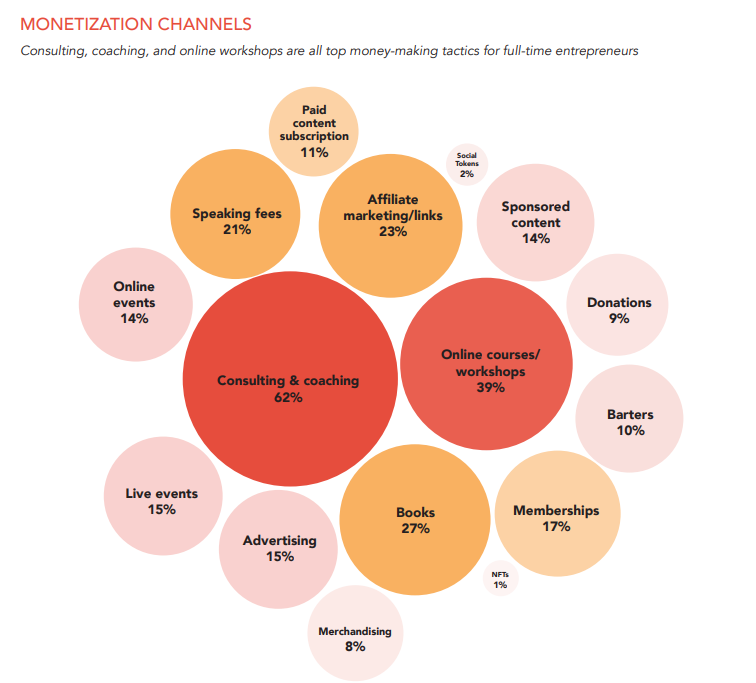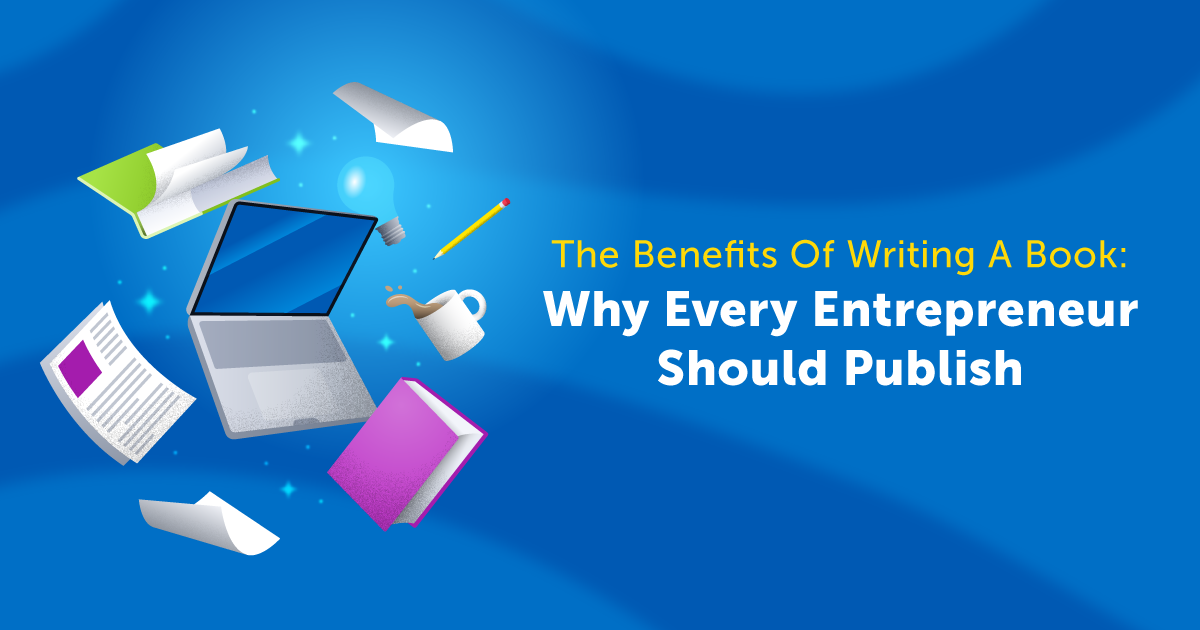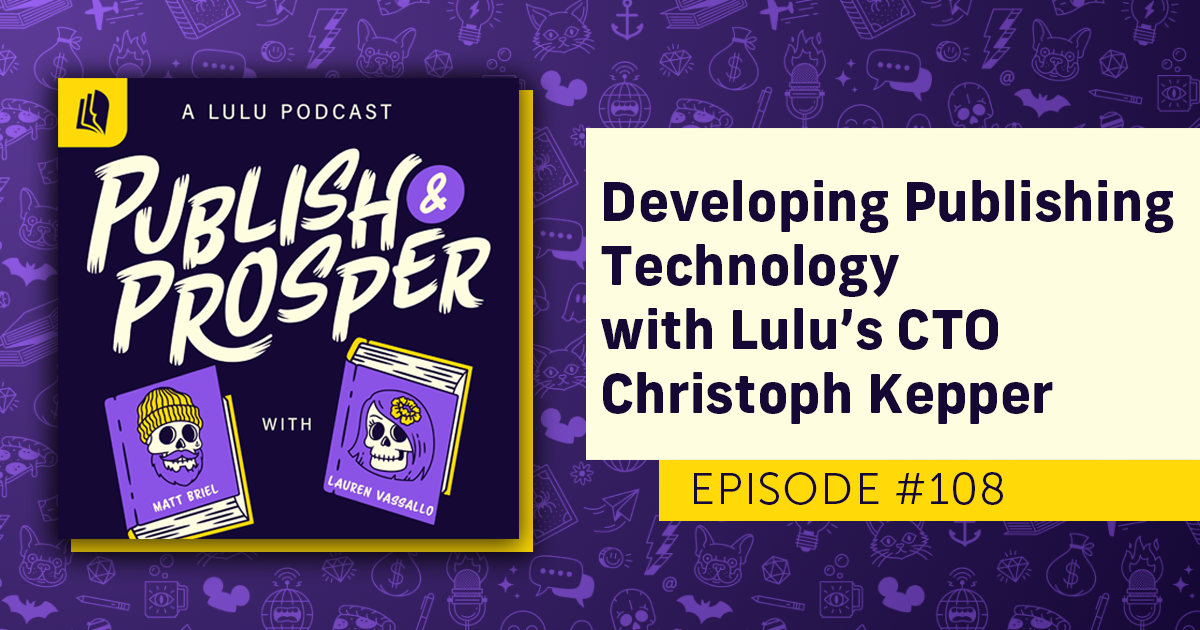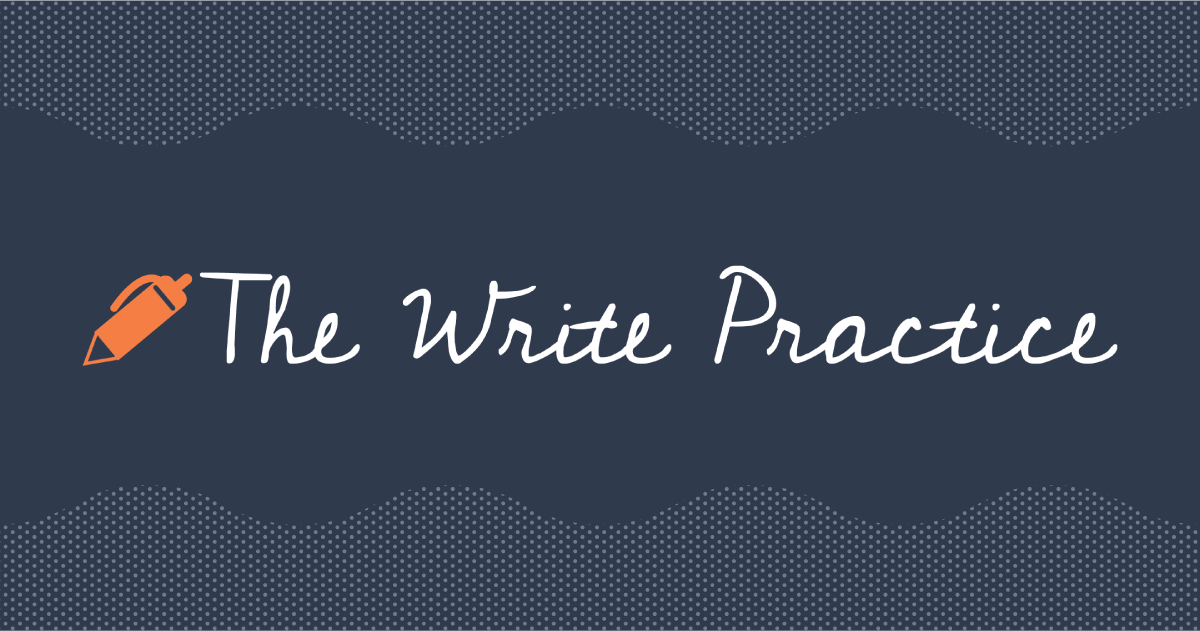The Benefits of Writing a Book: Why Every Entrepreneur Should Publish
If you’re a creator, small business owner, or solo entrepreneur, you’ve had to consider how you’ll grow your creator business. For most of us, that’s not as much fun to think about—we’d rather be working on a creative project or interacting with fans or peers on social media. Regardless, adding new followers and new sources of revenue is important. Luckily, self-publishing a book is one of the most effective ways to grow your business.
For some creators (primarily novelists), traditional publishing might still be an option. But if you’ve started down the entrepreneur’s path, you likely want the kind of control the traditional publishing industry does not offer.
The good news is that you can write a nonfiction book (or a self-help book or an instruction manual or a marketing guide or any kind of book) and self-publish it. There’s never been a better way to build up your authority within your industry and add to your profits than by self-publishing your books.
What Is Self-Publishing?
When you handle every part of the publishing process, from creating to editing to design, you’re self-publishing. Normally, this means working with a publishing platform that provides print-on-demand services to create your books as you need them—the alternative being an offset printer that produces 10,000 copies at your expense. You’ll pay less per book, but they’ll spend a long time in boxes filling up your garage before you sell all of them.
Self-publishing opens the door to content creation for anyone and everyone. Now you can write a book, design print-ready files, upload your files, and order copies of your book with ease. Online self-publishers help indie authors and content entrepreneurs alike with online retailer connections and ecommerce solutions.
If you’re new to self-publishing and you’re wondering how to write a book and get it published, I suggest some further reading to learn the steps to publishing a book. There’s a lot that goes into creating your book; don’t get overwhelmed and remember that your book is an investment in your brand, knowledge, and your audience.
The Advantages of Self-Publishing for Entrepreneurs
Do you know what successful entrepreneurs sell? Okay, there’s no one answer, but according to research from The Tilt, books are the third-most popular way entrepreneurs earn an income (after coaching and online courses).

You should also note that the most popular ways all include the opportunity to utilize books—be it a workbook to supplement your online class, a coaching book to hand out at in-person events, or an account of your career journey to build interest and authority.
And you don’t need to be a best-selling author for your book to be a successful part of your content business. You could create books to benefit your brand in several ways:
- Content Marketing – Your book is basically long-form content marketing: you’re doing a lot of work to bring original ideas and insights to a topic you know intimately.
- Lead Magnet – You might focus on using the book as a lead magnet to complement your other creative endeavors and money-making efforts.
- Earn Revenue – Books are a great way to monetize content you may already have and create a new revenue stream.
With a little marketing effort, your book can open doors to other opportunities (like teaching online courses or speaking events), build your brand within your industry and your authority within your subject matter.

Speaking to Your Target Reader
Just writing a book is never enough. You could write a great book with the most absolutely crucial insights. No one will care if they aren’t inspired to pick up the book in the first place.
You need to understand your target audience so that you can develop an effective marketing strategy for your book. Of course, you’ll start with the existing audience you’ve built through your content already. Then look to others in your industry and subject matter experts to see who is buying their books. Who do they advertise to and how do they build their social posts or newsletter emails?
Gather as much information as you can and use it to shape your marketing plan.
Create a Marketing Plan for Your Self-Published Book
You’ve already got a content business, so you know you need a marketing plan to successfully promote your book. To begin, you’ll rely heavily on your existing audience by sharing links to the book through email, social media, and any other platforms.
But your existing platform is just the beginning. You’ll also want to bring your book to podcasts, print magazines, and online outlets that might be interested in your topic and pitch the possibility of you as their interviewee.

Book Design Is Book Marketing
Marketing to a variety of existing fans and reaching new audiences is futile if you don’t design your book for those audiences. Aside from writing a truly awesome book, the two most important marketing elements of your design are the book title and book cover
Be sure to speak to your audience and define your book’s message clearly in the title. For some nonfiction books, that can mean a long title and subtitle. Here’s an example:
Make Books, Make Bank: A Complete Guide To How Your Book Will Make You Money
Not as catchy as The Lord Of The Rings, I know. But it’s specific, speaks to the niche market you are targeting, and clearly states “This is what you’ll learn if you read this.”
You must pair that informative title with an eye-catching book cover design. Look to your peers for inspiration. If vector graphics and bright colors are popular with books in your genre, you’ll want to use both when designing your own cover.
This is one area of your publishing journey you may want to hire a professional.
Steps to Successfully Self-Publish Your Book
There are a lot of ways to break down how to create and print a book. Here are four quick points to get you started (along with plenty of additional resources):
- Write the book – This might seem obvious, but you need to get a solid draft written before you take any additional steps.
- Edit and design the book – Your book needs at least one round of thorough editing before you can turn your content into a print-ready book file.
- Add metadata – There’s a lot of data required to publish your book; this is called your metadata.
- Upload the book file – The final step is to upload your file to publish!
Since you’re using a print-on-demand publishing company, you’ll likely use their website to enter your information and upload your files. Here’s a 1-minute video of the process using Lulu.
Once you’ve got your book published, you can start selling it to your fans! With Lulu, you’ll have the advantage of Lulu Direct, our ecommerce platform that works with Shopify, Wix, and WooCommerce.
When you sell directly to your fans, you’ll earn 100% of the revenue from every sale. You’ll also retain customer data, and control both the experience on your website and the content of your book.
Building Your Brand With a Book
Earning revenue from your book sales is nice, but the biggest value will be in the way it grows your brand.
Remember that image I shared above that listed books as the third best way for entrepreneurs to make money? The first and second are both ways to leverage your knowledge—through consulting, speaking at events, and online courses or workshops.
You don’t just get invited to speak at industry events. You have to be a well-respected authority within that industry.
And what’s the best way to prove your knowledge of a subject or industry? To write the book on it!
Seriously, writing a book that highlights your knowledge and insight will help establish you as an authority in your field. That, in turn, can lead to the attention of event coordinators who will want you to speak at their event.
Proving yourself to be an authority also benefits your ability to sell an online course. A guy named Steve King isn’t going to convince me to drop $100 to hear him talk for 40 minutes about writing fiction. But prolific author Stephen King could charge many times that.
All because we know through his books that he’s an authority in his field.
Long-Term Benefits of Self-Publishing for Entrepreneurs
As a content creator, your best route to sustainable income is building a loyal fanbase who will always be eager to buy what you create. It’s unlikely that one product will be enough to sustain your business, but books offer great returns over time.
Building a Community Around Your Brand
It’s important that you develop a thriving, loyal fanbase. This is your brand community, the group of people who follow all your social media platforms and are excited to hear about what you’re creating. Over time, as you add more content to your catalog (like a few books, some online courses, and some speaking opportunities), you’ll continue to build a bigger, more loyal brand community.
Alongside engaging with an ever-growing fandom, you need to consider where you’ll connect with those fans. If you’re relying on a social media platform or an online publisher to share your content, you’ll always be at their mercy. It’s a concept in the marketing world referred to as building on rented land. You risk losing access to your audience when they all engage on someone else’s platform.
That’s why you need to develop your own website to share your content and engage with your audience directly. There you can build an email following, opening up another vital, direct means of communicating with your audience. And you’ll have the option to use an ecommerce service to sell your products and services directly to your fans!
Build Your Brand Authority
Establishing yourself as an expert will lead to more opportunities to grow your brand and earn revenue from speaking at events or through online courses. As you work with your audience and learn what they need, you might find it’s time to write another book!
With a brand that is well-known as an authority in your niche and a backlist of books that establish your expertise on specific topics, you’ll be in a great position as a content entrepreneur. As your brand grows, so will your revenue and your creative opportunities. Reputation is vital for creators—the creator economy today is built on communities and relationships. Your book is one powerful means to make your name known and establish that you are a subject matter expert.






